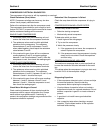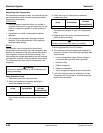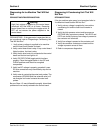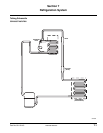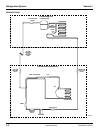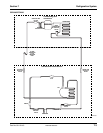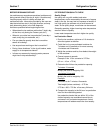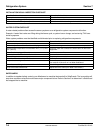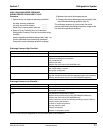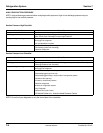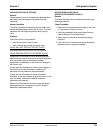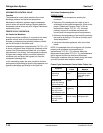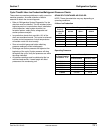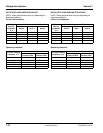
Section 7 Refrigeration System
Part No. 80-1214-3 7-5
BEFORE BEGINNING SERVICE
Ice machines may experience operational problems only
during certain times of the day or night. A machine may
function properly while it is being serviced, but
malfunctions later. Information provided by the user can
help the technician start in the right direction, and may
be a determining factor in the final diagnosis.
Ask these questions before beginning service:
• When does the ice machine malfunction? (night, day,
all the time, only during the Freeze cycle, etc.)
• When do you notice low ice production? (one day a
week, every day, on weekends, etc.)
• Can you describe exactly what the ice machine
seems to be doing?
• Has anyone been working on the ice machine?
• During “store shutdown,” is the circuit breaker, water
supply or air temperature altered?
• Is there any reason why incoming water pressure
might rise or drop substantially?
ICE PRODUCTION/QUALITY CHECK
Quality Check
Ice quality will vary with ambient and water
temperatures, and is measured by the amount of excess
water in the ice. An easy test is to squeeze a handful of
ice. High quality ice releases only a small amount of
water. As ice quality drops, more water can be removed.
Generally speaking, higher incoming water temperature
results in lower ice quality.
Lower water temperature results in higher ice quality.
Ice Production Check
1. Run the ice machine a minimum of 10 minutes to
allow the system to stabilize.
2. Catch the ice in a non-perforated container for
7 minutes and 12 seconds or for more accuracy
14 minutes and 24 seconds.
3. Weigh the container and ice, then deduct the weight
of the container.
4. Convert ounces to pounds.
Example: 3 lbs. 12 oz. converts to 3.75 lbs.
(12 oz. ÷ 16 oz. =.75 lb.)
5. Determine the 24-hour ice production capacity.
7 minutes 12 seconds
Multiply the total ice weight by 200.
14 minutes 24 seconds
Multiply the total ice weight by 100.
Example:
Collected ice for 7 minutes 12 seconds
Total weight (minus container) = 3.75 lbs.
3.75 lbs. x 200 = 750 lbs. of ice every 24 hours
6. Compare the capacity to the 24-hour ice production
chart for the model being tested.
Ice production checks that are within 10% of the
charted capacity are considered normal due to
variances in air and water temperatures. Actual
temperatures will seldom match the chart exactly.
Revised 8/2003



